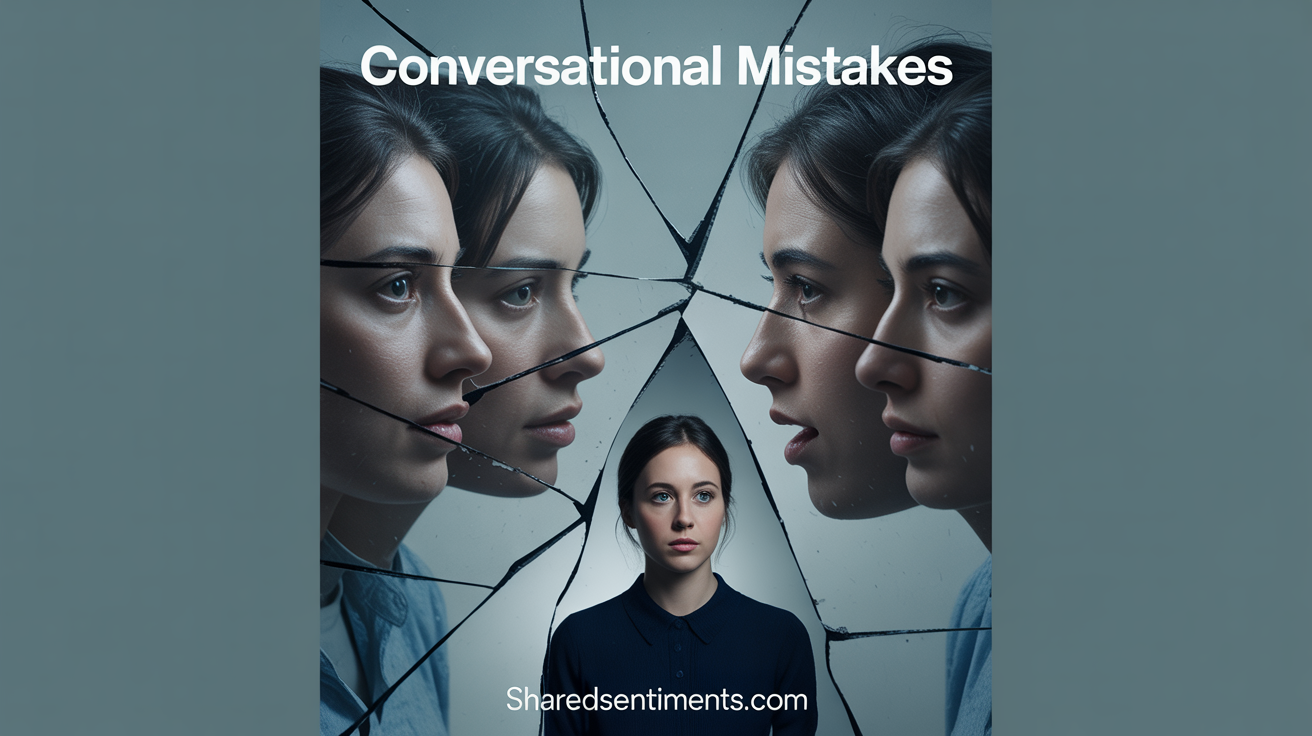5 Conversational Mistakes That Can Make You Look Dumb

“The real art of conversation is not only to say the right thing at the right place but to leave unsaid the wrong thing at the tempting moment.”
—Dorothy Nevill
I believe social skills and relationships are two of the most valuable parts of life.
That’s why it feels strange to me that, while we spend years learning many subjects as we grow up, we don’t get much guidance on how to improve our communication skills.
If there’s one subject schools should spend more time on, this is it. Strong communication can change not only our own lives but also the way society works.
Of course, if you look around, you can find plenty of advice on this topic. People have shared wisdom on it for centuries. Still, because conversation is so natural and ever-changing, it’s hard to find tips that fit every single moment. Many lessons only come through real-life experience.
That said, there are some clear warning signs. I’ve found five common conversational mistakes that can hold us back. If we avoid these most of the time, our relationships, our communication, and even our lives can grow in powerful ways.
1. Talking Too Much and Listening Too Little
We’ve all met someone who talks nonstop, barely letting others get a word in.
If I’m honest, I’ve been that person at times.
When I get excited, I want to share every thought in my head, but I’ve learned that it makes the other person feel unheard.
A conversation isn’t a speech—it’s a back-and-forth.
The real magic happens when I slow down, listen carefully, and show interest in what the other person has to say.
When I practice this, I find people open up more, and the whole exchange feels richer.
2. Interrupting Out of Habit
Sometimes I interrupt because I think I know what someone is about to say.
Other times I do it because I’m impatient.
Either way, it usually leaves the other person feeling like I don’t value their words.
I’ve had people cut me off mid-sentence, and it’s frustrating.
So when I catch myself jumping in, I remind myself that silence is not awkward—it’s respectful.
Letting someone finish their thought before I respond shows I care about their perspective, and it makes conversations flow better.
3. Assuming Instead of Asking
One of the biggest mistakes I’ve made in conversations is assuming I already know what someone means.
It’s easy to fill in the blanks in my head, but those guesses are often wrong.
This leads to misunderstandings, and sometimes even arguments that didn’t need to happen at all.
What I’ve found is that asking a simple question can clear up confusion instantly.
Instead of jumping to conclusions, I can say, “What did you mean by that?”
That one sentence saves me from a lot of unnecessary conflict and shows I actually care about understanding.
4. Forgetting About Body Language
Words are only part of the story.
I’ve learned that my tone of voice, eye contact, and even how I stand or sit matter just as much.
If I say something kind but cross my arms and avoid eye contact, the message doesn’t land.
People pick up on these signals, often more than the words themselves.
I’ve had conversations where I realized later that I looked distracted or distant, even though I didn’t mean to.
Being mindful of my body language helps me send the message I actually want to send.
5. Letting Emotions Take Over
I know what it feels like to respond too quickly when I’m upset.
In the heat of the moment, I’ve said things I didn’t mean and later regretted.
Once words are spoken, you can’t take them back.
That’s a tough lesson I’ve had to learn more than once.
What helps me is pausing before I speak, especially when emotions are high.
Sometimes even taking a deep breath gives me enough space to choose a calmer response.
Conversations go much better when I don’t let anger or frustration run the show.











